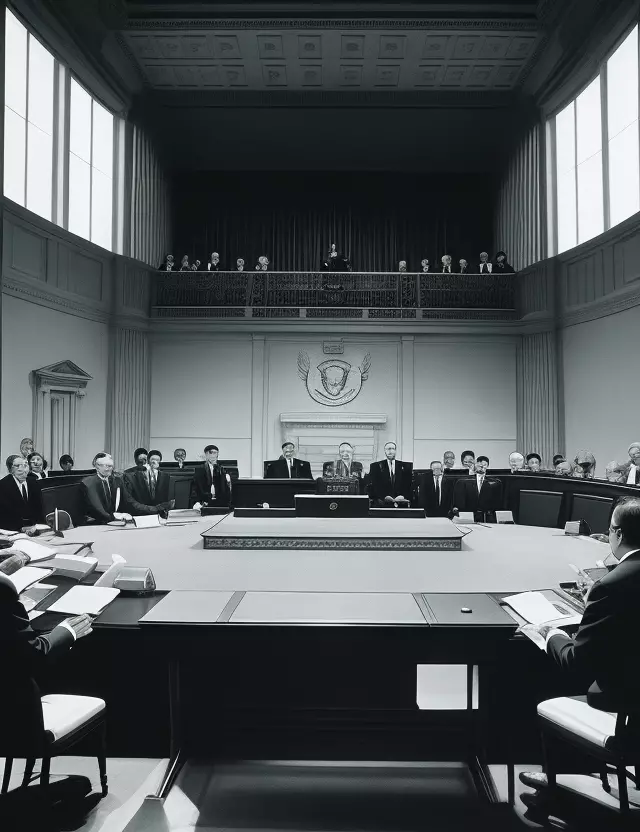Warren Commission: Investigation into the Assassination of President John F. Kennedy (1963)
U.S. President Lyndon B. Johnson's Directive

Introduction
On November 29, 1963, in the aftermath of the tragic assassination of President John F. Kennedy, U.S. President Lyndon B. Johnson took a decisive step by appointing the Warren Commission. This commission was tasked with investigating the circumstances surrounding President Kennedy's assassination and providing a comprehensive understanding of the events that unfolded on that fateful day. Explore the historical significance of the Warren Commission's investigation and its impact on public perception.
Appointment of the Warren Commission
Following the assassination of President Kennedy on November 22, 1963, there was a pressing need for a thorough and impartial investigation into the events leading to his death. In response, President Lyndon B. Johnson issued an executive order on November 29, 1963, establishing the Warren Commission to conduct the official inquiry.
Members of the Commission
The Warren Commission, formally known as the President's Commission on the Assassination of President Kennedy, was composed of prominent individuals from various fields. The commission was chaired by Chief Justice of the United States Earl Warren, and its members included distinguished figures such as U.S. Senators, representatives, and legal experts.
Investigation and Findings
The Warren Commission conducted a comprehensive investigation into the circumstances surrounding President Kennedy's assassination. The inquiry included testimonies, examinations of evidence, and interviews with key individuals. The commission's final report, known as the Warren Report, was released in September 1964. It concluded that Lee Harvey Oswald acted alone in assassinating President Kennedy and that there was no evidence of a conspiracy.
Public Perception and Controversies
The findings of the Warren Commission had a significant impact on public perception. While the report concluded that Oswald acted alone, it did not quell various conspiracy theories that emerged over the years. The commission's investigation and its conclusions became the subject of ongoing debates, fueling skepticism and controversies surrounding the assassination.
Legacy and Ongoing Discussions
The Warren Commission's investigation remains a crucial part of the historical record of President Kennedy's assassination. The findings, while officially accepted, continue to be scrutinized and debated. The legacy of the Warren Commission is intertwined with the broader narrative of one of the most consequential events in U.S. history.
As we reflect on the establishment of the Warren Commission on November 29, 1963, we recognize its role in conducting the official investigation into the assassination of President John F. Kennedy. The commission's findings, controversies, and the ongoing discussions surrounding the events of that day contribute to the complex and enduring legacy of this pivotal moment in American history.



